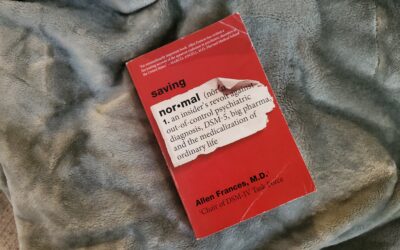 Addressing life’s problems requires an integrative approach.
Addressing life’s problems requires an integrative approach.
We often treat issues in our lives like isolated events; work problems are at the office, relationship problems are at home, depression or anxiety are in our heads.
While it might be tempting to compartmentalize issues like this, the reality is that unhappiness at work can spill into family time, marriage problems can distract us at work, and depression or anxiety often hovers over everything like a fog.
That’s why an integrative, humanistic therapy approach is critical for true healing. Such an approach also is essential for employers to create a workplace where people thrive inside and out. Besides providing individual and couples therapy to clients, I also offer employer consulting services.
I’ve always had an innate drive to help people.
As a student and young adult, I knew many parents and professionals who weren’t happy in their careers and saw how this unhappiness could negatively impact personal wellness.
I initially translated my interest in helping others into industrial-organizational psychology, which focuses on psychology in the workplace and wellness in professional settings.
In addition to working in various company counseling and human resources settings, I also worked in more specialized counseling settings, helping clients with intellectual disabilities and providing therapy for victims of sexual abuse. After several years in these roles, I realized that corporate counseling only solved part of the problems people faced, and genuine personal fulfillment required a different approach.
I have worked in human resources, education, integrative mental health, career counseling, and private practice settings. After 20 years of working in these areas, I realize now that a holistic, integrative approach is critical to building a healthy, balanced life.
Meet Suzi Sena, EdS, LPC
 Understanding comes from making the right connection.
Understanding comes from making the right connection.
At all stages of my life, I’ve valued authentic, direct, and honest communication – and counseling in a corporate setting didn’t allow me to connect with my clients in the way I wanted.
To help others more effectively, I connected with my clients individually, integrating career counseling, family and relationship therapy, and individual support for grief, depression, and anxiety.
By pursuing this work, I could relate to clients on a truly human level. Rather than treating surface-level symptoms or treating problems in isolation, this approach allowed me to identify and work with an issue in its entirety.
After being able to help clients transform their lives, I wanted to take what I learned back into the corporate setting. I am passionate about assisting employers in creating environments where employees thrive by focusing on executive and leadership coaching, diversity and inclusion, and workplace mental health. Several years ago, I expanded my practice to include employer consulting.
Here’s more about me.
For information about my education, certifications, and professional associations, you can access my credentials by clicking on the button at the bottom.
My love of learning and my curiosity make connecting with clients genuinely fulfilling. However, it’s important to me to practice what I say.
To achieve balance in my own life, I enjoy spending time with my family and friends, hiking and enjoying nature, practicing yoga and Pilates, and finding great local restaurants. Holistic wellness is a priority of mine as an individual, a therapist, and an employer consultant.
Why I Support Clients With Increasing Their Health Literacy
Sometimes clients (usually newer to me and just getting to know me) apologize for researching a counseling method or approach I may use in my office. They may research EMDR for a certain type of anxiety or a polyvagal technique to help understand their parasympathetic...
Guide to Integrative Counseling
There’s a common misconception out there that making yourself feel better is as simple as finding a fix. If you break your arm, all you have to do is put a cast on it and wait for it to heal. And if someone breaks your heart, all you have to do is buy a pint of ice...
A New Normal: Why Medicalizing Mental Health is a Problem
This above photo is my personal copy of Saving Normal by Allen Frances, MD. I love this book because it really explains how we have come to medicalize ordinary life. Dr. Frances goes into account firsthand with direct experience of the development of the DSM-IV to the...
Why Passion Is Important
Life’s minutiae can be overwhelming. For some of us, there can be so much to worry about, handle, or stay on top of on a daily basis that it can be hard to stay motivated and energized every day. Daily routines start out as systems to help us move through life more...





